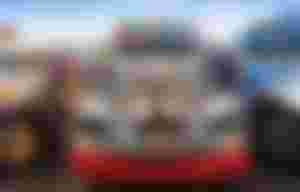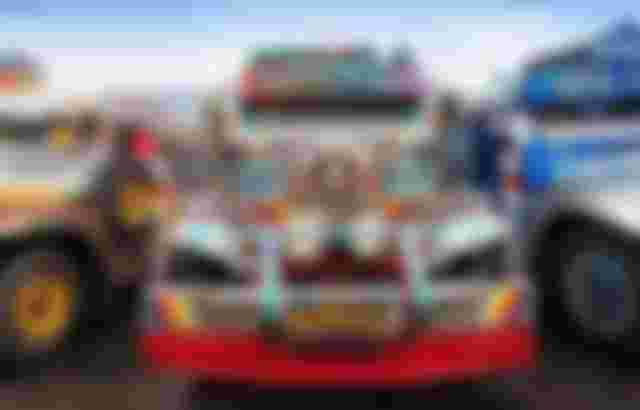
Before work I will arrive
I have to cross six towns
If we measure on the watch
It will take more than an hour
During the trip I was said to have lost
When I did the job transfer
It's tiring to think about
"But what's more important" I was happy
Jeep is the one I always ride
Mc Arthrur route it runs
NLEX can also be accessed
If I have a private vehicle
There is no case so the jeep is being charged
But whether it be a car or a van
‘Will not be used to Meycauayan
I love crude oil
So every day I ride in a jeep
The dust and smoke endure
So when I come to the office
Master (‘not“ sardines but facial cleanser ”) is used
In "daily travels" I noticed again
Jeep is our “primary mode of transport”
Jeep "king of the road" if we consider
Other pests on the road here look
Many are really disgusted with the jeep
Because of the amount they cause is traffic
At the corners stop and squeeze
Its drivers love to tilt
But even what we are looking for is annoying
When taking a walk or walking
Is the jeep on the road scattered
There is something new, something old, something new
Uncle Sam's jeep when John gave it to him
Various ornaments are placed here
John used it for a living
Design to his taste adapted
There is a short jeep with a super-long
There are brand new ones there are super-old ones
There is a racing machine
And there is also of course penance
There is a jeep with a stereo to have fun
Passengers boarding
Once upon a time I was startled
There is a TV and DVD jeep on board
Our jeeps, style is assorted
Because so many ornaments are so decorated
There is stainless, there is the color is hanep
Filipinos are really cool in style
It is true that the jeep symbolizes
In the "ingenuity" of the Filipino race
Because it is an American heritage vehicle
John did give a new design
With the continuation of the lockdown in the country, the transportation sector is one of the worst affected. Stop passing by the considered king of the road, the jeepney or jeep. From the threat of modernization to the effects of the pandemic, Filipino drivers seem to be left untouched in their whirlwind of poverty.
The Physical Dyipning Pinoy
The jeepney serves as a symbol of the Philippines and our Filipinoness. From inside and outside the vehicle, we can get a real picture of who and what a Filipino is. The Filipino jeepney we see is a product of the modification of jeeps brought to the Philippines by the Americans. The Americans left their car after the war. And here the jeeps began to be modified to meet the transportation needs of the Filipinos. Modifications include roofing, opening the back, and reclining seats on both sides to accommodate more passengers.
Filipinos adapted and adapted the changes on their own terms. This includes placing colorful designs and ornaments ranging from sayings, pictures, colors and up to the saints and altars inside the jeep. Because of this, the jeep depicts the creativity of the Filipinos.
During the pandemic, jeepney rule disappeared. The colorful designs are rusty, the loud horns and music are silenced, the tarpaulins of both windows are closed, the entrances of the passengers are fenced off and the bright lights are turned off. The king is no longer in the middle of the road, they are just on the curb. 80% of drivers in Manila alone have not passed for five months.
The Filipino Culture Inside the Jeep
In fact, we can liken the experience of riding a jeep to society. It shows the social order and true behavior of a Filipino in his society.
The Bayanihan
Many of us may have joined in the lifting and pushing of the luggage to the far end of the jeep from a passenger. You also received fares and exchanges from various hands, shouting and knocking on the ceiling of the jeepney for the passenger to get off and many other activities showing participation in the experience of others. It is a duty that passengers can consider handing over the driver's fee — and even foreigners who are stranded in our country are riding in a jeep.
The jeep used to be crowded so that drivers could consume the income per flight. If it doesn't really fit, someone will give you a pull on the butt out of the chair, so that others can sit down. Others will only be hooked if allowed on the route, especially to give to the elderly, carrying a child or pregnant woman. This is so that everyone on board can delay the flight.
The movements inside the jeep are collective. Individualistic behavior cannot prevail. You are included in each other’s total experience while traveling. One's experience is a downward spiral. We will not go astray as long as we practice empathy.
Currently, everyone is wrapped up in fear. Some jeepneys have also returned to the ground and created methods to follow the government's instructions to implement some health protocols such as social distancing. The former side-by-side body, the noisy conversations, the sympathy of fellow passengers are gradually erased to prevent the virus as life goes on. Everyone is afraid of reaching the fare, quickly puts alcohol in their hands, avoids talking to everyone, does not want other skin to touch their own body. This pandemic has alienated us from strong association with others.
Being Tribal
There is fun in every jeep ride experience. We are like a tribe sharing in the successes and misfortunes of the passengers and the events on the road. As riders, we cannot help but listen to the life stories of the driver and passenger. This experience proves the communalism of all, a characteristic of the ancient community or tribal customs.
The customs within the tribe are deep in Filipino culture, with a trusted leader and powerful in this space. On the road, our drivers are clearly leaders and kings. They are the hope and have the power to deliver us safely to our destination. They have strength as workers, strength that comes from their loyal passengers, like a tribal leader with loyal followers.
With the intensity of their grievances, why does their experience still seem unheard of? Where is the government's ear to the grievances of day-to-day driver workers? In fact, the government's silence on the issues they face is deafening. Most drivers expect the government to listen to their grievances.
The Self-Exposure
By riding in the jeep, we present ourselves. Each passenger loses private space. We expose ourselves to others. We are judged by what others of us see, hear, smell and feel. And in exposing oneself, this is where the exploiters, the curious, the intruders and the indifferent, the indifferent and the indifferent.
The smell is symbolic of self-exposure. Mixed odors will be experienced in the jeep, from the foul odors of perfume, sweat, smoke, and roads. In the morning, fresh air and smells can be inhaled inside the jeep, especially before rush hour. The presentation of ourselves inside the vehicle was clean and airy. Everyone is ready to take on another challenge as a rider who is neat and clean. The opposite is true when you go home, a different smell will penetrate the noses. Picture the mixed smells of the riders' daily experience in their respective jobs. Everyone is tired and indifferent to self-presentation.
The presentation that the government is showing us is different, they are showing it far from reality. It is clear to us that they only report fragrant images and fragrant images. There is no stench of reality from society. The government has forgotten to smell us. Their noses are clogged with the real stench of poverty, hunger, misery, and chaos of the people.
Who is the King?
As the modernization of public transport, such as jeepneys, continues to push, businessmen and investors continue to push themselves into lending to the masses in order to have a modern vehicle. Such a system will further immerse the average driver.
Back then young children and individuals holding documents were begging inside the jeep. Now the world is upside down, drivers are on the streets begging. Some of them have been arrested and imprisoned for allegedly violating the quarantine measures. It hurts them to do this, but they are less able to just wait indoors while the family is hungry.
The government seems to have abandoned those who pass by, even the occupants who are forced to walk from time to time just to get in. The needs of the poor like the driver continue to be put aside. Insensitive lockdown exists. It deepens social inequality and injustice, exacerbating poverty and hunger. The bayanihan is gone to meet their needs. Complaints covered the ear. Loss of sensation in rotten system during pandemic. The government leader lost himself.
What else to expect and captain if he no longer has a car? Really hard to be hard.
